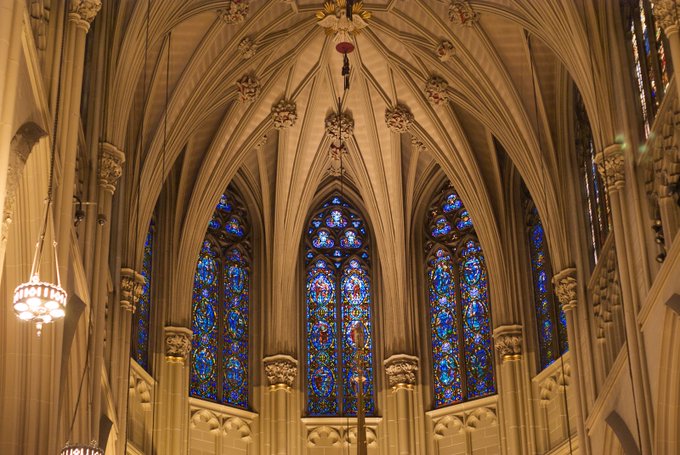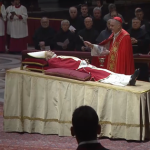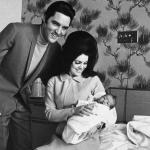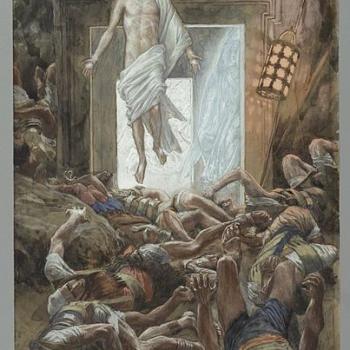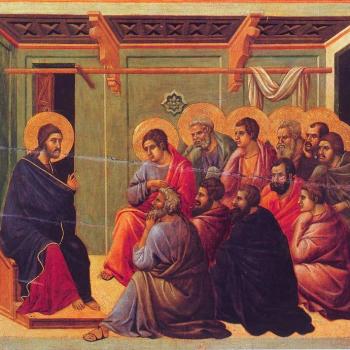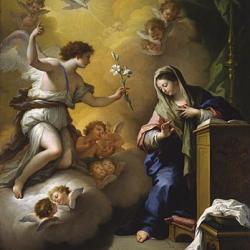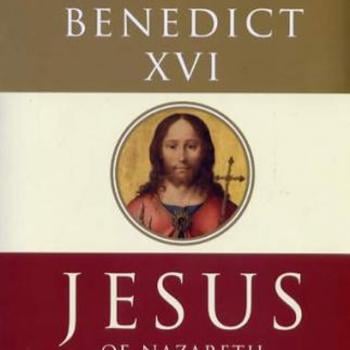―
“He told me once: I cannot and do not want to copy the model of John Paul II in sickness, because I have to face my life, my choices, my strengths. This is why the pope allowed himself to make this decision, which to me required not only a lot of courage, but also a lot of humility,” he said.
Gänswein: The devil was ‘very against Pope Benedict’ – Deacon Greg Kandra (thedeaconsbench.com)
Pope Benedict “understood the connection between solid faith formation and evangelization,” said Father Hezekias Carnazzo, a Melkite Catholic priest and founding executive director of the adult catechetical Institute of Catholic Culture based in McLean, Virginia.
For the late pope, that dynamic required “always required asking the question of who God is,” said Father Carnazzo, noting that Pope Benedict “very clearly answered that question with his encyclical ‘Deus Caritas Est’ (‘God is Love’), in which he reminds us that God is love, and love is the giving of ourselves to the beloved.”
Pope Benedict placed Jesus Christ at the heart of church’s mission, say evangelizers – TheCatholicSpirit.com : TheCatholicSpirit.com
“Among you, in the College of Cardinals, there is also the future pope to whom today I promise my unconditional reverence and obedience.”
Benedict spoke these words at the conclusion of his final address to the College of Cardinals on February 28, 2013. Benedict himself kept his word, but sadly many Catholics – including many in that room – refused to follow his example. Early in the pontificate of his successor, these words were a consolation to me when I struggled with something Pope Francis said or did. I thought, if Pope Benedict has pledged Francis his unconditional obedience, then the least I could do is give him a chance.
And for that, Holy Father Benedict, I am forever grateful.
May eternal light shine upon you.
5 Quotes from Pope Benedict that changed my life – Where Peter Is
―
Francis is, of course, now older than Benedict was when he decided to resign, showing no signs of emulating his predecessor’s example. And, give or take a bad knee and colon surgery in 2021, the pope appears to be in rude health and set to continue in office for the foreseeable future.
But however long Francis continues, his relationship with his predecessor for the first decade of his pontificate will be an important part of his own time in office.
Conspiracy theorists and partisan commentators to one side, Francis was a not infrequent visitor to the monastery at the bottom of the garden. While we may never know how much counsel the pope sought from his predecessor, or what effect it had in shaping Francis’ own thinking, that too is a part of Benedict’s legacy.
Pope Benedict’s most important legacy is Francis (pillarcatholic.com)
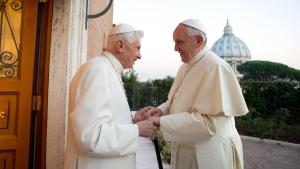
Pope Benedict XVI — especially during his extraordinary career and ministry as a theologian and professor — was not only one of the towering intellects in global Catholicism but also one of the most prolific.
In his nine decades of life, Joseph Ratzinger wrote more than 60 books and more than 1,300 articles, essays, and academic pieces; three encyclicals; and four apostolic exhortations. The writings range from profound theological tomes to general audiences to spiritual reflections, to encyclicals, to more popular books and book-length interviews. They cover fundamental and dogmatic theology, biblical exegesis, spiritual theology, cultural commentary, and catechesis on virtually every possible aspect of the faith.
It is a daunting task to begin reading his work, not merely because of the sheer volume but also the intimidating subject.
Here are five suggestions for a Benedict reading list. They span decades and topics, but each has been chosen as emblematic of his teachings and each is also accessible to the average reader. Any list is subjective, of course, but this is a potentially helpful place to start wandering through a holy and profound mind.
A Ratzinger reader: 5 books to help you encounter Pope Benedict XVI – Catholic World Report
“Seeing with the eyes of Christ, I can give to others much more than their outward necessities; I can give them the look of love which they crave.”
― God Is Love: Deus Caritas Est
Here are a few suggested books for the ordinary reader—that is, who is not a trained theologian or academic—who is looking for a good place to start.
A beginner’s guide to reading Joseph Ratzinger/Pope Benedict XVI – Catholic World Report
This isn’t just a silly, random contrast between a real man and a movie character. I really have been thinking about death, and how we live in preparation for it, and how that preparation affects everyone around us. I have been marveling with gratitude at how easy on the Church Benedict made his death, and how many years in the making this ease has been. I’m old enough to remember a tiny bit of the tumult when John Paul II was elected, and also when he died, and also when Pope Francis was elected. Benedict XVI’s unexpected renunciation of the papacy did throw the Church into confusion for a time, but then he lived exactly has he promised to do — quietly, in complete docility, showing nothing but support, love and respect for Pope Francis, until all but the most pop-eyed fanatics had to grudgingly believe he meant exactly what he said: that he was no longer pope, and Francis was, and the Holy Spirit was in charge, amen, the end, live with it.
And so, having made these preparations and having lived them out, he now seems to be passing into the waters of eternity with the smallest of ripples, having already accomplished most of the work of transition, like a kindly grandfather who has prepaid for a funeral, cleaned his house and carefully labeled his belongings for his heirs.
No knives out after the death of Benedict – SIMCHA FISHER
Steven D. Greydanus December 31, 2022 at 2:36 PM
Actually THIS is the best lesson I ever learned from Pope Benedict XVI: “If an individual is to accept himself, someone must say to him: “IT IS GOOD THAT YOU EXIST” – must say it, not with words, but with that act of the entire being that we call love.”
– Principles of Catholic Theology (Emphasis mine…)
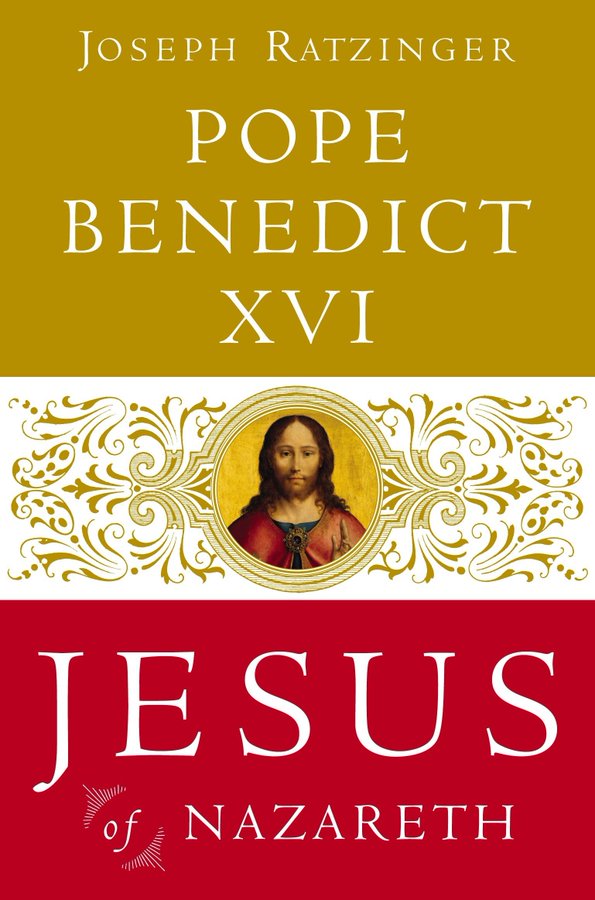
The first has to do with the stained glass windows, which flood the interior with mystic light. From the outside, those windows are dark, heavy, even dreary. But once one enters the church, they suddenly come alive; reflecting the light passing through them, they reveal all their splendor. Many writers – here in America we can think of Nathaniel Hawthorne – have used the image of stained glass to illustrate the mystery of the Church herself. It is only from the inside, from the experience of faith and ecclesial life, that we see the Church as she truly is: flooded with grace, resplendent in beauty, adorned by the manifold gifts of the Spirit.
It can be dimmed too, by the obstacles encountered in a society which sometimes seems to have forgotten God and to resent even the most elementary demands of Christian morality. You, who have devoted your lives to bearing witness to the love of Christ and the building up of his Body, know from your daily contact with the world around us how tempting it is at times to give way to frustration, disappointment and even pessimism about the future.
In a word, it is not always easy to see the light of the Spirit all about us, the splendor of the Risen Lord illuminating our lives and instilling renewed hope in his victory over the world. Yet the word of God reminds us that, in faith, we see the heavens opened, and the grace of the Holy Spirit lighting up the Church and bringing sure hope to our world.”
Pope Benedict XVI, St. Patrick’s Cathedral, April 19, 2008.
May he rest in peace.
“Jesus, ich liebe dich!” Jesus, I love you.
These were the final words that Pope Emeritus Benedict XVI uttered before he died, a powerful final expression of love and faith.
Pope Benedict XVI’s last words: ‘Jesus, I love you.’ | America Magazine


